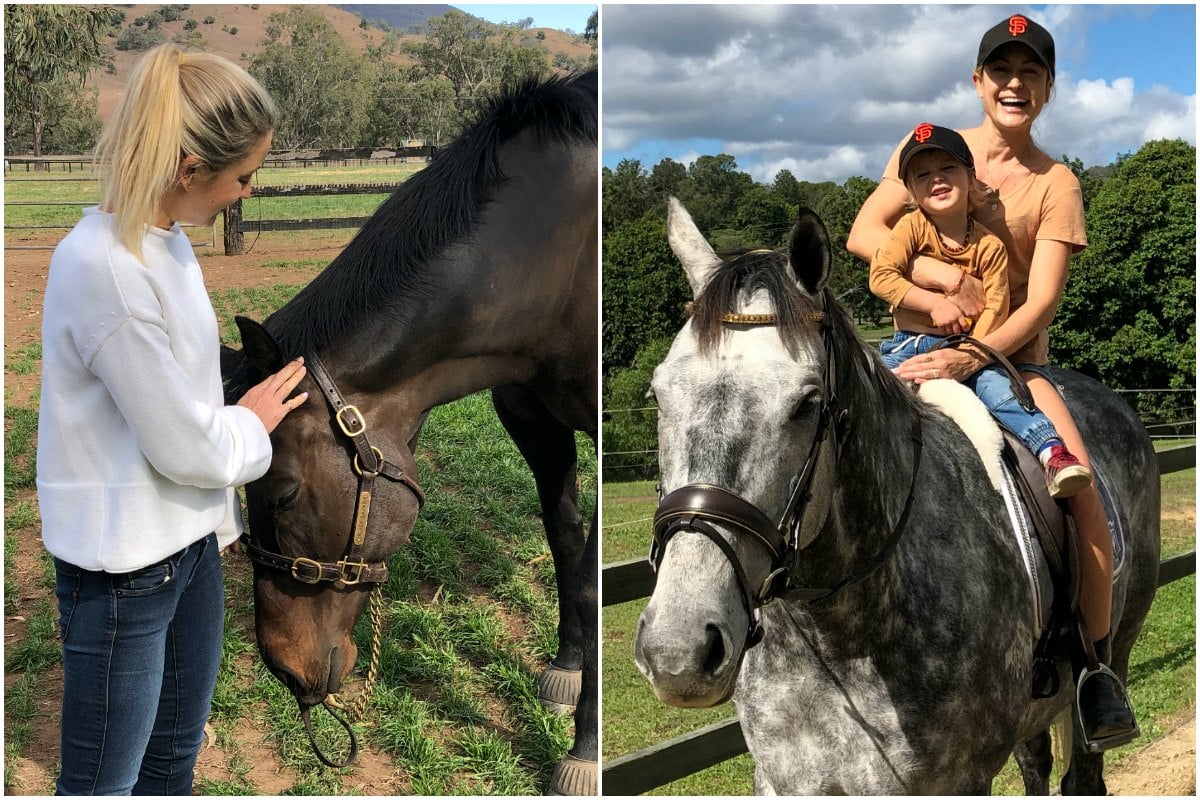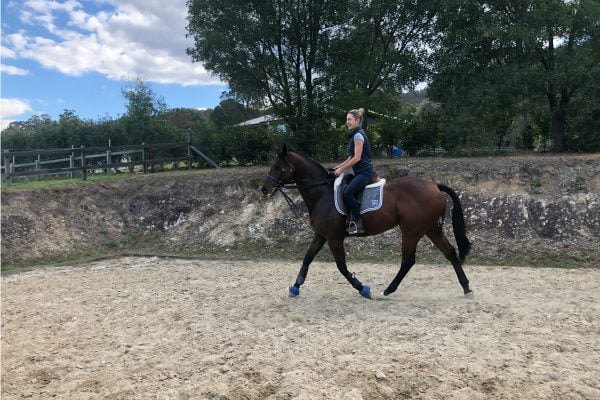
Mamamia understands that Australians have diverse views when it comes to events like the Melbourne Cup. You can read more about the facts around horse racing in 2019 here, a defence of the industry here, and the perspective of some animal rights activists here.
Realistically, horse racing is not going to stop. Its origins date back to 459 BC. So if you’re concerned with the welfare of horses while they are racing, isn’t now the most important time in history to lean into the industry and be a voice for change, rather than say #NupToTheCup?
Former US president Barack Obama said last week: “Woke people who simply call out others without trying to educate or improve society aren’t activists”.
I’ve always been a believer in walk the walk before you talk the talk. Which is why as a horse-lover, I am a part owner in a racehorse.
Working as a journalist and presenter, I found myself increasingly attending race day events. It didn’t go unnoticed that there were protestors outside. At this point I want to say to those people, high-five to you. You have my full respect. I also appreciate that if you live your life by vegan practices, or don’t believe animals should have any commercial gain, then I understand this isn’t for you.


Top Comments
Horse racing is fundamentally flawed. The realist in me says that this multibillion dollar industry will never fully disappear, but I refuse to compromise my values by trying to find excuses for its blatant cruelty. Taken from the MSD Veterinary manual online, exercise-induced pulmonary haemorrhage can be detected in 90% of racehorses by examination of the cells in their airways, despite only 5% actually showing the graphic nosebleeds that will lead them to being retired from racing. This means that the majority of the racehorses you see are being pushed beyond their limits. EIPH is rarely detected in horses used for other disciplines. You may argue that horses 'love running', but the only natural situation I can imagine a horse running until its lungs bleed would be in flight from a predator. This alone, without the ethical quagmire of over-breeding stock to get a winner, is enough to call the 'sport' cruelty.
If horse-racing didn’t pay anything, no-one would do it. It is about money, not horses. That’s it. Supposed horse-lovers involved in racing who say otherwise are liars. But racing has always attracted those types. Seedy, low-brow gambling types who are dodgy. Ugh.